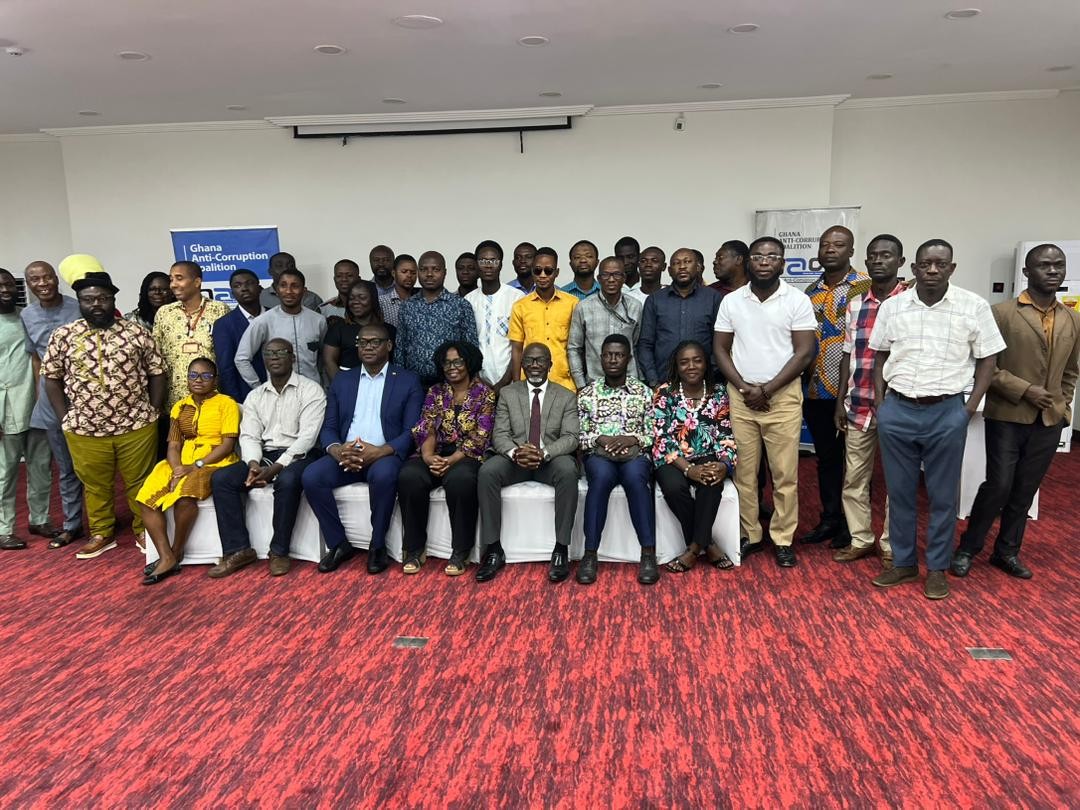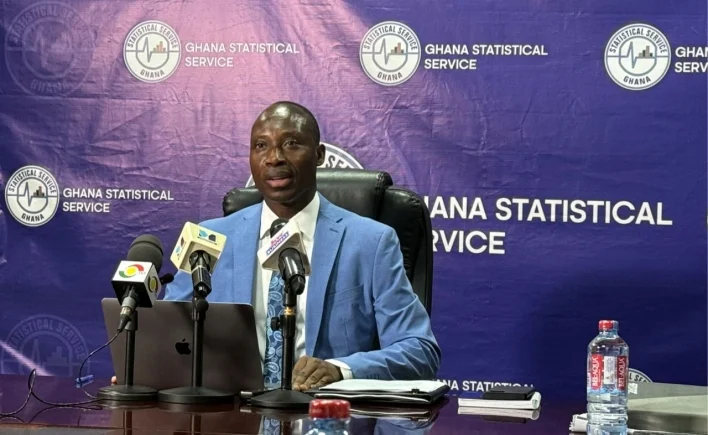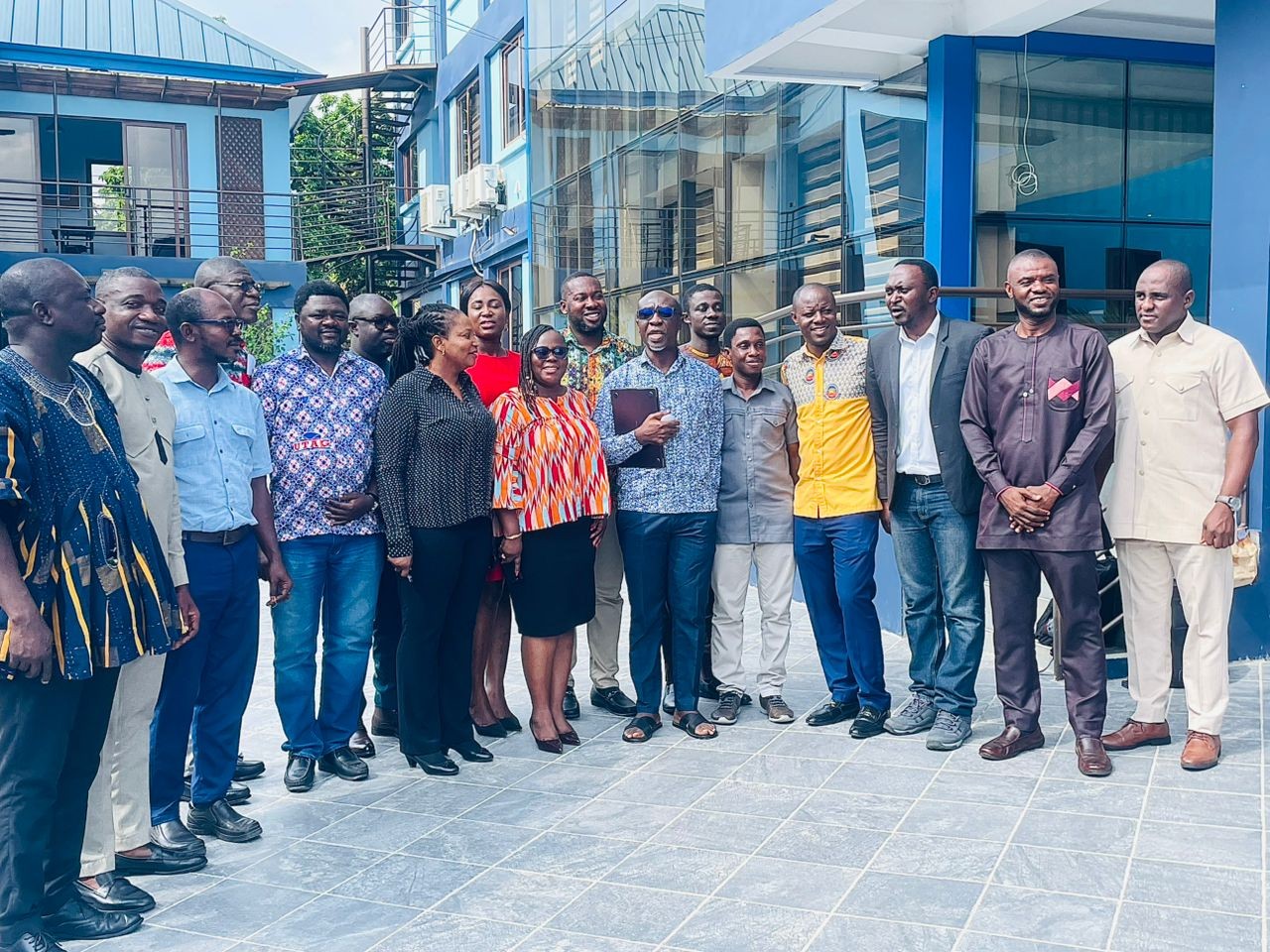The Ghana Anti-Corruption Coalition (GACC), in collaboration with the Ghana Audit Service, has organized a two-day training workshop aimed at strengthening journalists’ understanding of the 2024 Auditor-General’s Report and equipping them with skills for follow-up investigative reporting.
The initiative, funded by the Hewlett Foundation, forms part of the project “Building Evidence on the Report for Increased Accountability in Ghana through a Multistakeholder Accountability Initiative.” It seeks to improve media coverage of audit findings and recommendations in order to promote transparency and accountability.
GACC Urges Media to Deepen Follow-Ups
The Executive Secretary of the Ghana Anti-Corruption Coalition, Mrs. Beauty Emefa Narteh, speaking at the training, urged journalists to go beyond reporting the initial findings of the Auditor-General’s reports and focus on sustained follow-up investigations to uncover the issues behind the audit findings.
Mrs. Narteh noted that while the release of the Auditor-General’s reports usually receives widespread coverage, there is often little engagement on whether the recommendations are implemented. She cited past examples where individual journalists pursued follow-up stories that exposed deeper irregularities, stressing that such efforts were vital for strengthening accountability.
She explained that the training was designed to equip journalists with practical tools to scrutinize audit reports and track corrective actions taken by state institutions. She further encouraged participants to share the knowledge gained with their colleagues in order to broaden the impact of the training.
Mrs. Narteh commended the partnership of the Audit Service in supporting the initiative and highlighted that stronger collaboration between civil society, the media, and oversight institutions was crucial for promoting transparency and accountability in public financial management.
Call for Accurate and Meaningful Reporting
Mr. Frederick Lokko, Assistant Director of Audit and Information Officer at the Ghana Audit Service, emphasized the importance of accurate and contextual reporting on the Auditor-General’s findings.
“Sometimes we see a disconnect between media headlines and the content of the Auditor-General’s Report. This can lead to misinterpretation by the public. We want the media to fully understand the audit process and the terms used so that reportage reflects the true meaning of the report,” he noted.
Mr. Lokko reminded journalists that the Auditor-General’s role, as outlined in Article 187 of the Constitution and the Audit Service Act, is to identify financial irregularities and make recommendations not to prosecute. Matters requiring legal action are referred to relevant agencies such as the Attorney-General’s Department and the Economic and Organised Crime Office (EOCO), with recovered funds paid into the Consolidated Fund.
While acknowledging the media’s crucial role in Ghana’s democratic process, he urged journalists to be meticulous in fact-checking, seek clarification from the Audit Service when in doubt, and ensure their reports inform the public accurately. “This engagement is not to criticise the media, but to improve their capacity. Especially in an age of misinformation, interactions like this help us all serve the people of Ghana better,” he added.
Patrick Neequaye Urges Accuracy in Media Interpretation
The Assistant Auditor-General in charge of the Information Systems Audit Unit, Mr. Patrick Neequaye, also called on the media to ensure accuracy and context in reporting audit findings submitted to Parliament.
He cautioned that while the Auditor-General fulfills his constitutional mandate by submitting reports, some media interpretations are often misleading or taken out of context.
Mr. Neequaye disclosed that irregularities still persist in the 2024 report, urging public institutions to adopt corrective measures and recover unaccounted funds. He further emphasized the need for stronger enforcement of Public Accounts Committee (PAC) recommendations.
He encouraged journalists to go beyond highlighting infractions by following up with the cited institutions to demand accountability. “The report should not end at publication. It is only through consistent follow-ups that the public can see whether recommendations are implemented and whether funds are truly recovered,” he stressed.
Practical Investigative Training
The workshop also featured a session by Mr. Stephen Nartey, an investigative journalist, who took participants through practical investigative skills and techniques.
Mr. Nartey underscored the importance of persistence, ethical practice, and accuracy in investigative reporting, reminding participants that credibility remains their strongest asset. Through interactive exercises, he equipped journalists with hands-on approaches to identifying leads, handling sensitive information, and pursuing stories that hold institutions accountable.
He highlighted that investigative journalism plays a critical role in deepening public accountability, as it often brings out issues that go beyond the surface findings of audit reports.
Source: Isaac Kofi Dzokpo
Share Us



